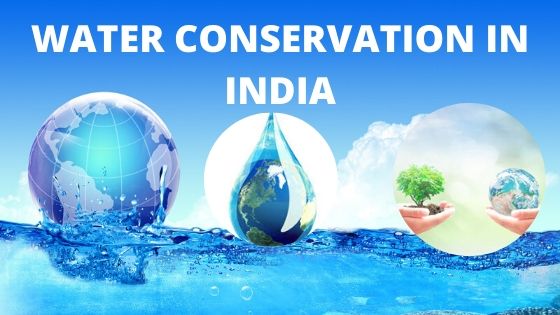Water Conservation in India
Water is a precious gift of God to humanity through nature. Life on earth is possible only due to water. In many areas of India and other countries, people are struggling with water scarcity, while three-fourths of the earth is surrounded by water. As people face difficulties in various fields due to water scarcity, they train us to save and conserve water to save the environment, life and the world.
It would not be hyperbole to say that India is on the verge of a serious water crisis. The current water resources are in crisis, the country’s rivers are getting polluted, water-harvesting mechanisms are deteriorating and the ground water level is continuously decreasing. Despite all these, the subject of water crisis and its management has not found a place in the discussions of the general public in India.
Out of the whole of water on the earth, only 1% of our water is able for drinking. Still, people waste the water that’s why we should save more and more water otherwise the day is not far when we will be craving for a drop of water. Where there is water, there is life.

Water Management
Water management refers to optimal utilization of water resources and due to the increasing demand for water. The need for proper management of water has been felt throughout the country for many years. Water management also covers the management of water related risks such as flood, drought and contamination. This management can also be done by the local administration and also by NGOs. Proper water management involves the management of water in such a way that it can reach all the people in sufficient quantity.
Major methods of water management
1. Waste water management system
Appropriate sewage systems help in the disposal of waste water in a clean and safe manner. Dirty water is recycled into it and made usable, so that it can be sent back to people’s homes for drinking and domestic purposes.
2. Taking care of natural water bodies
Natural water sources such as lakes, rivers and seas are quite important. Both freshwater ecosystems and marine ecosystems are home to a diversity of different organisms and without the support of these ecosystems these organisms will become extinct.
3. Water Conservation
It is necessary to emphasize water conservation in the country and any unit (be it individual or a company) can save many gallons of water daily by reducing unnecessary use of equipment.
4. Irrigation systems
A good quality irrigation system can be ensured for the nutrition of crops in drought affected areas. These systems can be managed so that water is not wasted and can also use its recycled or rain water to avoid unduly depleting the water supply.
Water crisis – current situation
1. If we consider some facts of water availability and use in India, only 4 percent of the global fresh water source exists in India, which has to provide water to 18 percent (Indian population) of the global population.
2. The Composite Water Management Index report released in the year 2018 by NITI Aayog states that about 21 major cities across the country (Delhi, Bangalore, Chennai, Hyderabad and others) will reach zero ground water level by the year 2020 and due to this about 100 million People will be impressed.
3. Whereas in the rural areas of the country, almost 70 percent people are forced to drink polluted water and 33 crore people are living in dry places.
4. If we talk about Delhi, the capital of the country, a recent report released by the Bureau of Indian Standards revealed that the water supplied by the Delhi Jal Board does not meet the BSI standards and is not potable.
5. Nearly 70 percent of water in India is polluted, due to which India was ranked 120 out of 122 countries in the Water Quality Index.
Suggestions for Water Crisis
1. Save the water this psychology should be given to every person in the society since childhood.
2. Plant more and more trees so that there is no shortage of rain. If possible, plant the plants in the rainy season so that they get natural water to the plant. Efforts should be made to plant such plants in the house which can also live in less water.
3. There are many ways to save water, but we have to start using those measures from our home. We have to save the flowing water by dripping it into our house. Instead of sitting under the fountain or directly under the tap, use the bucket and mug. Use fountains instead of pipes when watering the home garden.
4. Necessary legislation should be made to ensure that groundwater is not exploited in an uncontrolled way.
5. The society should have collective rights over ponds and other water resources. Therefore, their privatization should be stopped.
Today there is a war for oil in the world. It should not happen in the future that there will be a war for water in the world. Therefore, man has to be alert from now on. Life can go on without gold, silver and petroleum, but without water everything will be deserted and desolate. Therefore, every person has to be conscious of their responsibility that they should not adopt such lifestyles and priorities in which life is a waste of unnatural water. In Indian, Hindu culture, water has been worshiped as Lord Varuna Dev, so it is necessary to perform the duty of conserving and utilizing each drop of water.






